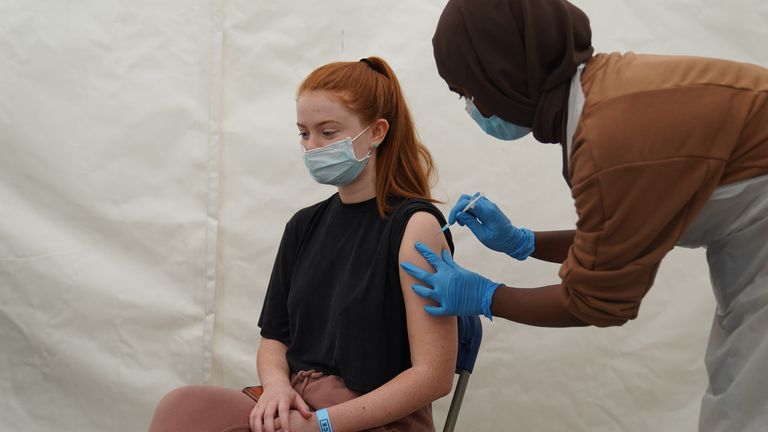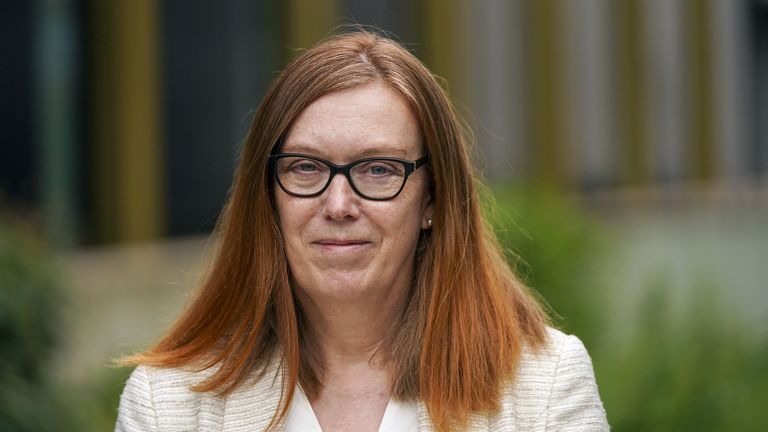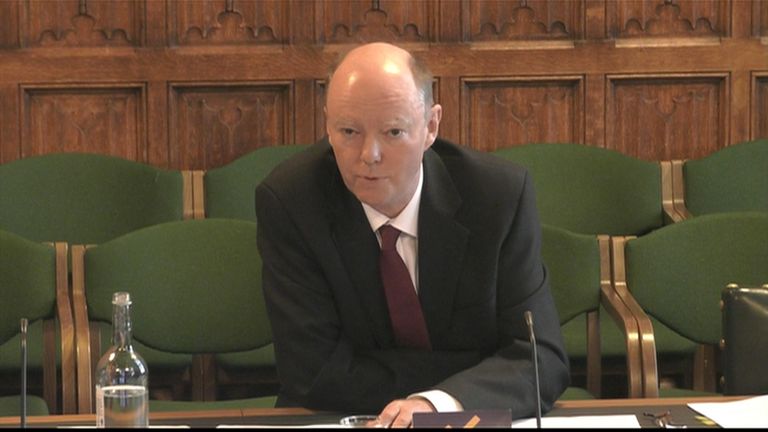COVID will end up resembling common cold by spring next year, leading experts say
COVID-19 will eventually be like a cold, leading experts have said.
Professor Sir John Bell, regius professor of medicine at Oxford University, said the virus could resemble the common cold by spring next year as people’s immunity to the virus is boosted by vaccines and exposure.
He added the country “is over the worst” and things “should be fine” once winter has passed, adding that there was continued exposure to the virus even in people who are vaccinated.
Meanwhile, Moderna’s chief executive Stéphane Bancel also said on Monday that the coronavirus pandemic could be over in a year as increased vaccine production ensures global supplies.
It comes the day after Professor Dame Sarah Gilbert, whose work helped to develop the Oxford-AstraZeneca vaccine, said viruses tend to become weaker as they spread around.
Asked about her comments on Times Radio, Sir John said: “If you look at the trajectory we’re on, we’re a lot better off than we were six months ago.
“So the pressure on the NHS is largely abated. If you look at the deaths from COVID, they tend to be very elderly people, and it’s not entirely clear it was COVID that caused all those deaths.
“So I think we’re over the worst of it now and I think what will happen is, there will be quite a lot of background exposure to Delta,” he added, saying the case numbers are quite high but those who have had two vaccines and are infected will still lead to stronger herd immunity.
“I think we’re headed for the position Sarah describes probably by next spring would be my view,” he said.
“We have to get over the winter to get there but I think it should be fine.”
Dame Sarah also suggested COVID will cause milder illnesses as she played down fears of a more deadly new variant.
Speaking at a Royal Society of Medicine webinar on Wednesday, she said coronavirus is unlikely to mutate into a strain that can evade vaccines because there “aren’t very many places for the virus to go”.
“We normally see that viruses become less virulent as they circulate more easily and there is no reason to think we will have a more virulent version of Sars-CoV-2,” Dame Sarah said.
“It’s just a question of how long it’s going to take to get there and what measures we’re going to have to take to manage it in the meantime.”
It comes after England’s chief medical officer Professor Chris Whitty said all children who had not been vaccinated would end up getting coronavirus because the virus would continue to spread as immunity wanes.
But Dame Sarah said on Wednesday that illness caused by COVID will become milder.
“We tend to see slow genetic drift of the virus and there will be gradual immunity developing in the population as there is to all the other seasonal coronaviruses,” she said.
During the webinar, Dame Sarah also warned that work must be done to prepare for future pandemics, adding that small amounts of investment now could potentially save billions of pounds in the long run.
Meanwhile, Mr Bancel told Swiss newspaper Neue Zuercher Zeitung: “If you look at the industry-wide expansion of production capacities over the past six months, enough doses should be available by the middle of next year so that everyone on this earth can be vaccinated.
“Those who do not get vaccinated will immunize themselves naturally, because the Delta variant is so contagious,” he added.
“In this way we will end up in a situation similar to that of the flu. You can either get vaccinated and have a good winter. Or you don’t do it and risk getting sick and possibly even ending up in hospital.”
Asked if that meant a return to normal in the second half of next year, he said: “As of today, in a year, I assume.”
Source: Read Full Article





